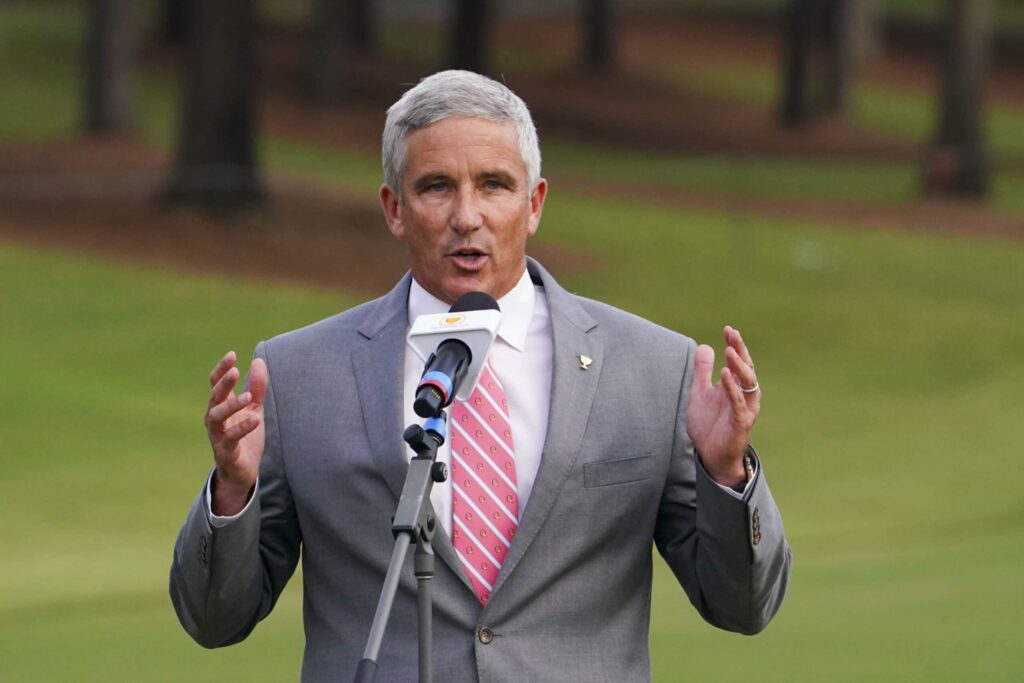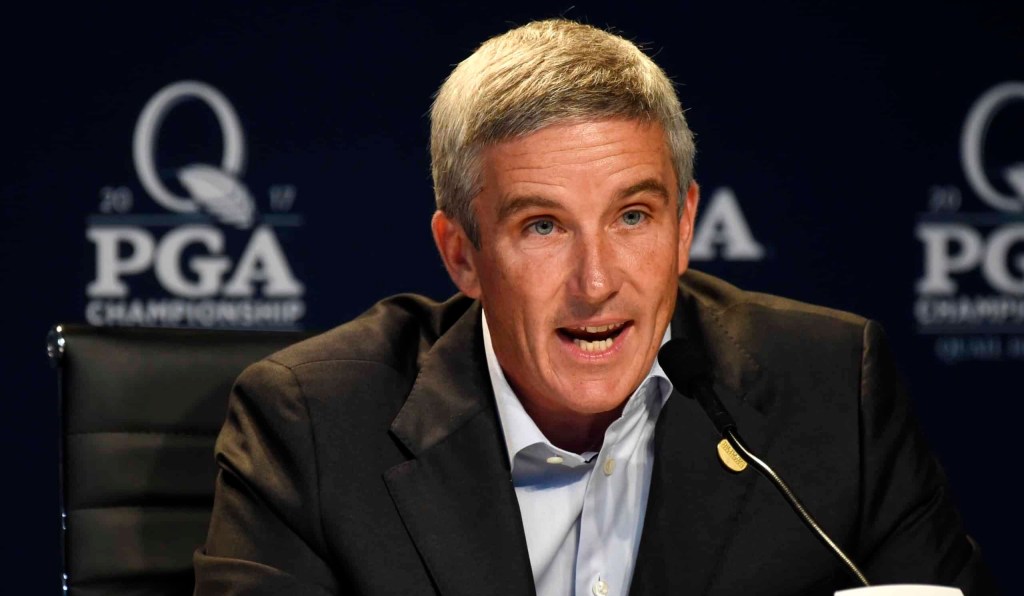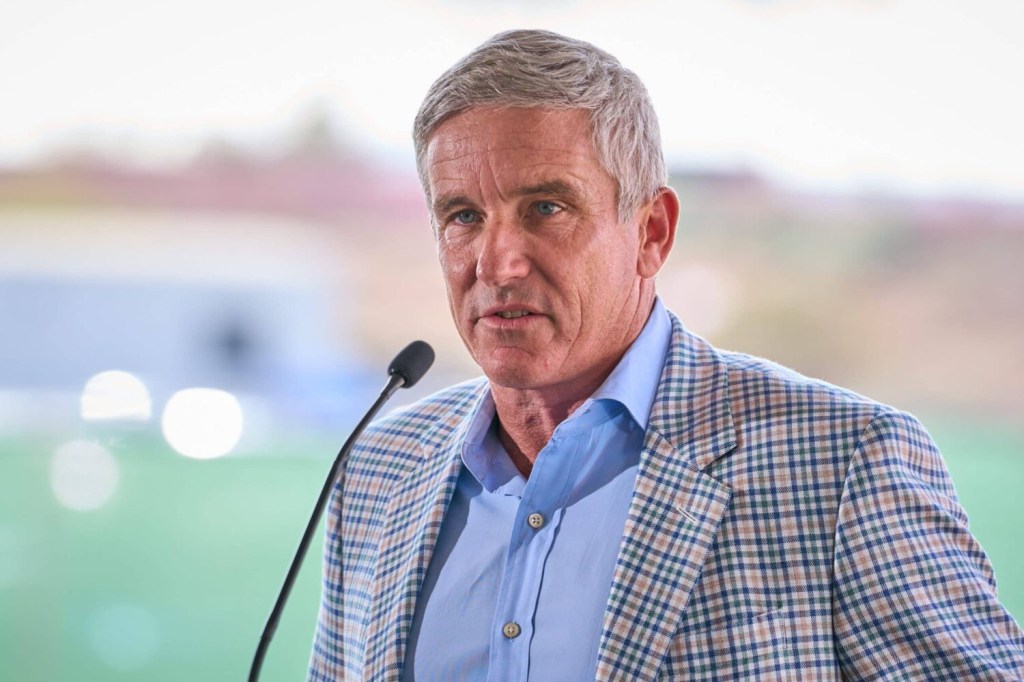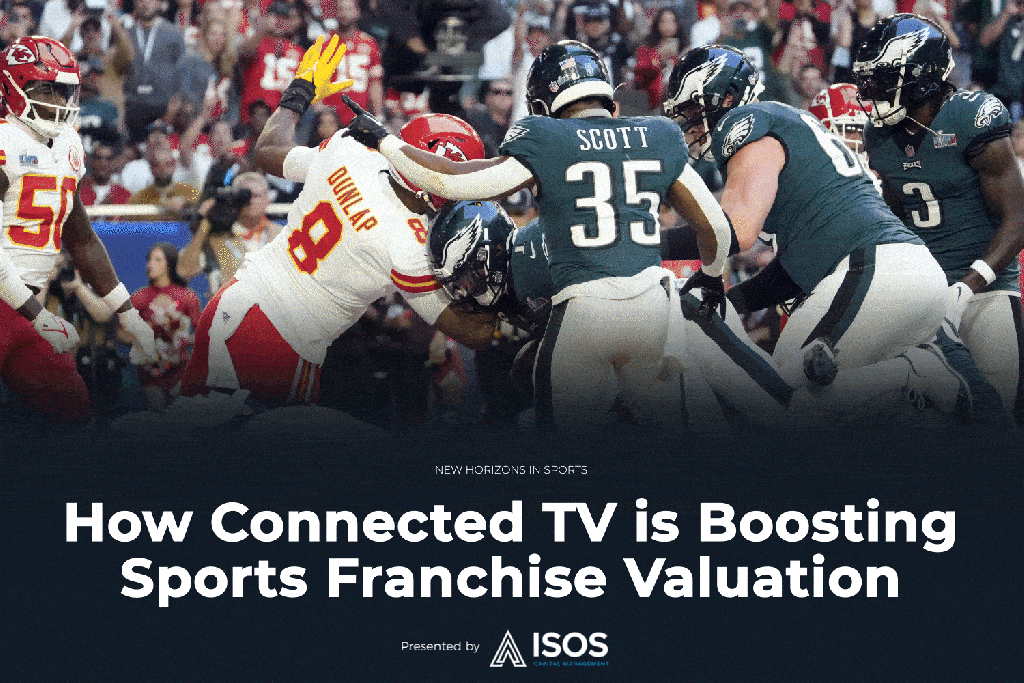On Tuesday, PGA Tour commissioner Jay Monahan sat next to Saudi Public Investment Fund governor Yasir Al-Rumayyan — a jarring sight given how the PGA Tour and the PIF’s LIV Golf have battled bitterly in the news media, inside courtrooms, and behind the scenes for more than a year.
Their CNBC interview provided the aftermath of the announcement that the PGA Tour, LIV Golf and DP World Tour would merge into a single commercial entity — a deal that will lead to the end of the litigation the former two have been part embroiled in since August. The PGA Tour will remain a 501(c)(3) non-profit, while the parent company will be for-profit.
The PGA Tour once played up LIV’s controversial Saudi ties in an effort to discredit its legitimacy. Now, as part of the truce, the PIF will be a significant investor in the combined entity — and Al-Rumayyan will chair the new company, with Monahan serving as CEO.
“This is a huge win for Al-Rumayyan,” one source told Front Office Sports. “His goal from the start was to become a big part of the worldwide golf scene.”
Exactly what changed and why are among the many questions that have yet to be answered.
What broke the deadlock?
There was no prior indication at all that the two warring sides were trending toward reconciliation — though Monahan told reporters that talks began seven weeks ago.
FOS reported in late May that the PGA Tour had not met with LIV Golf face-to-face to discuss their situation and was not interested in a standalone Tour vs. LIV event (an idea perhaps back on the table with the merger).
So what might’ve been the catalyst? Brooks Koepka.
The 33-year-old’s fifth major championship victory at the PGA Championship in Rochester, New York, was supposed to be a huge boon for LIV, which has been struggling with attendance and viewership.
Instead, the PGA Championship had its worst final-round viewership since 2008, and LIV’s Washington, D.C. tournament the next weekend saw only 14,000 fans attend its final round — more than expected but a far cry from the 16,000-20,000 that can fit at TPC Scottsdale’s 16th hole alone for the Waste Management Phoenix Open.
The PIF, therefore, may have begun to see the writing on the wall that fans were not going to buy into their golf product. It also had the implications from its legal battles to consider.
Opinions differ on which side had the upper hand in the antitrust lawsuit argued in the U.S. District Court of the Northern District of California. The case wasn’t scheduled to go to trial for 11 months and could have been pushed to 2025 — but such issues appear to be moot with the merger.
The PIF was in the middle of an appeal of a lower-court decision ruling the sovereign fund was subject to discovery, which included depositions of PIF leaders and relevant documents. Had the PIF lost the appeal, it could have left the fund open to discovery in U.S. courts — something it had been successful in avoiding with its other investments, including Tesla.
The PGA Tour also faced some exposure over its response to LIV, which allegedly included pressuring networks and sponsors to avoid partnering with LIV, which began play last June. Much of the case has been under seal, but what had been made public so far could have posed problems, and there was likely other evidence that would have bolstered LIV’s case.
Before a joint motion to dismiss is filed, the two sides have to turn the framework of the announced deal into a settlement. The final terms of the settlement are expected to be worked out by the end of June with a motion to dismiss the litigation coming shortly afterward.

What ramifications will it have at the government and political level?
There are multiple hurdles before this deal is finalized.
The merger will receive plenty of scrutiny from regulators in the U.S., European Union, and United Kingdom — and some Senate Democrats are already advocating for a closer look.
“The question obviously is whether or not there are any current laws involving foreign relations or foreign business dealings that haven’t been complied with,” Sen. Dick Durbin, (D-Ill.) told reporters, per The Hill.
The Department of Justice — which launched an investigation a year ago into the PGA Tour over concerns about anticompetitive practices — could also sue to block the merger. The Federal Trade Commission will also have a say.
Beyond that, congressional investigations could also intervene. The Senate Foreign Relations Committee, the Senate Subcommittee on Competition Policy, Antitrust, & Consumer Rights, and the House Subcommittee on Antitrust, Commercial, and Administrative Law would be the likeliest bodies to initiate a review, which in turn could lead to hearings.
American politicians are generally unhappy with the union — so much so that Rep. John Garamendi (D-CA) introduced the “No Corporate Tax Exemption for Professional Sports Act” on Wednesday, designed to eliminate tax loopholes that the PGA Tour and other sports leagues have exploited for years.
How will the new entity fairly handle player compensation?
Beyond a lot of blowback from its own players and much of the golf community, the Tour is getting a lot of money — up to $3 billion, a source told FOS. That amount could be in the final settlement agreement.
Money is the one thing the PIF doesn’t lack, with assets under management totaling about $650 billion — it was backing LIV with $2 billion in funding through 2024. What LIV didn’t have was a serious foothold in pro golf, and there had been doubts about whether it’d ever gain enough traction to become a true rival of the PGA Tour.
In the near term, before regulators weigh in on the merger, the PGA Tour players will continue to benefit from the boost in compensation through elevated events and other upgrades in response to LIV. Both tours are expected to finish their 2023 seasons under the status quo.
But the new combined entity will have to address the numerous PGA Tour players who turned down massive offers from LIV — as well as mollify their frustrations by fairly penalizing those who left.
Tiger Woods was offered as much $800 million, Rory McIlroy could have banked $500 million for leaving the PGA Tour, and others turned down nine-figure deals to stick with the PGA Tour.
“Their loyalty will be rewarded,” Monahan told Golf Channel.
Bryson DeChambeau, one of the players who took LIV’s money, was suspended by the PGA Tour in the aftermath of his LIV defection last year.
“I do feel bad for the PGA Tour players because they were told one thing and something else happened,” he told CNN. “On our side we were told one thing, and it’s come to fruition.”
Still, the source of the PGA Tour’s new money — if the merger is approved — could be the PIF.
Meanwhile, former LIV players may have to pay hefty fines to get their Tour cards back, with the amount varying from player to player, according to Barstool Sports’ Dan Rapaport.
What will the golf product look like?
LIV Golf made its name by playing 54-hole tournaments with smaller fields and no cuts — which, combined with the smaller number of tournaments per season, was designed to allow players to play less while still being compensated.
That’s largely at odds with the PGA Tour, which stages 72-hole tournaments nearly every week of the year with large fields that require cuts — though it was going to experiment with smaller fields with no cuts for some events.
It’s unclear if one of these formats will prevail, or if the two entities would agree on a hybrid — but another possibility is that LIV might continue to operate separately from the Tour.
In an excerpt from his upcoming book on the PGA Tour-LIV Golf conflict, Alan Shipnuck reports that LIV Golf CEO Greg Norman — who many thought wouldn’t survive the merger — told his staff Wednesday that “there will be no operational changes in 2023, 2024, 2025, and into the future … LIV is a standalone entity and will continue to be that moving forward.”
The new combined entity is nevertheless committed to continuing LIV’s innovation of team golf: The original press release said that the PGA Tour, DP World Tour, and LIV Golf “will work together to best feature and grow team golf going forward.”
That includes having teams in TGL — the virtual golf league started by Woods and McIlroy — the first of which was purchased by Serena Williams and Alexis Ohanian. It remains to be seen if any LIV players will get the invite.

Will Jay Monahan’s job survive this?
The person taking the largest brunt of the backlash is Monahan.
The PGA Tour commissioner had spent much of the last year and more trashing LIV Golf in any way he could, leveraging the moral argument of Saudi Arabia’s numerous human rights violations and its involvement in 9/11.
Now, after taking money from the PIF, Monahan and other PGA Tour brass look like hypocrites — and are possibly staring at resignation.
Among the groups critical of LIV Golf was one that LIV alleged received support from the PGA Tour: 9/11 Justice.
“Previously, the PGA Tour was publicly and rightly on the record about recognizing and objecting to the ongoing human rights abuses and terrorist activities of the Kingdom of Saudi Arabia,” said Brett Eagleson, president of 9/11 Justice. “It is abhorrent to us that now the PGA Tour has reversed course, in what appears to be a spineless major money grab, significantly boosting Saudi Arabia’s massive, pervasive, and unrelenting global sportswashing campaign.”
Another group, 9/11 Families United, wrote in a statement that Monahan “co-opted the 9/11 community last year in the PGA’s unequivocal agreement that the Saudi LIV project was nothing more than sportswashing of Saudi Arabia’s reputation. But now the PGA and Monahan appear to have become just more paid Saudi shills.”
Monahan had a bumbling response to those groups in an interview with Golf Channel on Wednesday.
PGA Tour players — many of whom, as mentioned, stayed loyal to the Tour despite lucrative offers from LIV — are rightfully upset with him, and some reportedly called for him to resign at a “heated” players-only meeting on Tuesday.
The anger from all sides could be too much for Monahan to overcome, but he may be able to survive if he waits out the storm and makes amends.
But ultimately, Monahan is now effectively Al-Rumayyan’s employee — and if His Excellency wants the commissioner around, the money says he will be.








